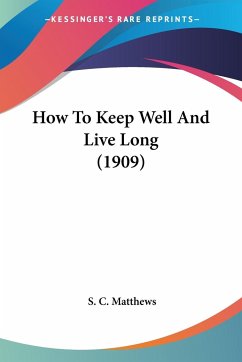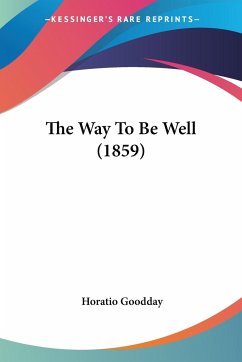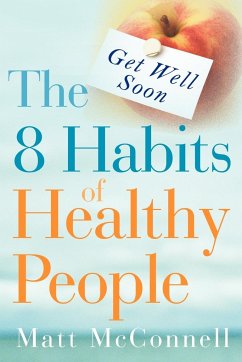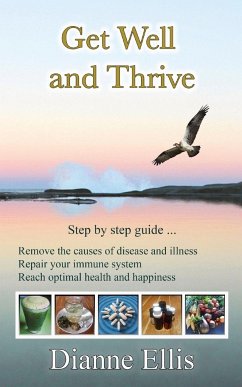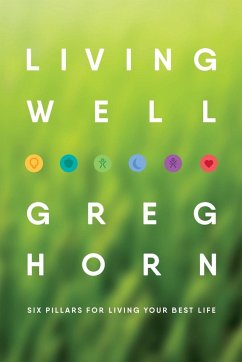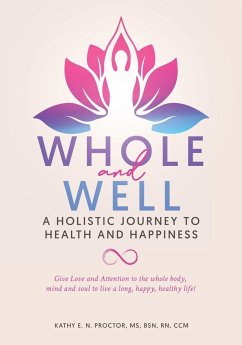
Getting Well
Versandkostenfrei!
Versandfertig in 1-2 Wochen
26,99 €
inkl. MwSt.

PAYBACK Punkte
13 °P sammeln!
Getting Well is a book written by Herbert M. Shelton, which provides a comprehensive guide to natural healing and wellness. In this book, Shelton explores the principles and practices of natural hygiene, which is a holistic approach to health that emphasizes the importance of a healthy lifestyle, including proper nutrition, exercise, and rest.The book covers a wide range of topics related to natural health, including the benefits of fasting, the importance of proper digestion, and the role of exercise in maintaining good health. Shelton also discusses the dangers of modern medicine and the imp...
Getting Well is a book written by Herbert M. Shelton, which provides a comprehensive guide to natural healing and wellness. In this book, Shelton explores the principles and practices of natural hygiene, which is a holistic approach to health that emphasizes the importance of a healthy lifestyle, including proper nutrition, exercise, and rest.The book covers a wide range of topics related to natural health, including the benefits of fasting, the importance of proper digestion, and the role of exercise in maintaining good health. Shelton also discusses the dangers of modern medicine and the importance of avoiding drugs and other harmful substances.Throughout the book, Shelton emphasizes the importance of taking responsibility for one's own health and well-being. He provides practical advice on how to make positive changes in one's life, including tips on how to choose healthy foods, how to get enough exercise, and how to manage stress.Overall, Getting Well is a comprehensive guide to natural health and wellness that provides readers with the knowledge and tools they need to take control of their own health and well-being. It is a must-read for anyone who is interested in natural healing and wants to live a healthy, vibrant life.Contents: What is Health; The Rationale of Disease; Compensation in Disease; Law Governs Disease; Physiology vs. Voodooism; The Story of Useless Organs; The Fun of Being Sick; How to get Well; Why Drugs; Quick Relief; Killing our Children; Curing Arthritis; Peptic Ulcers; What are Tumors; Curing Gallstones; Diabetes; Varicose Veins; Asthma; Warts; Influenza; Who's on a A Diet; Food cures; Vitamin Failures; When to Eat; Growing Old; Diseases of Middle Life; plus more.This scarce antiquarian book is a facsimile reprint of the old original and may contain some imperfections such as library marks and notations. Because we believe this work is culturally important, we have made it available as part of our commitment for protecting, preserving, and promoting the world's literature in affordable, high quality, modern editions, that are true to their original work.



